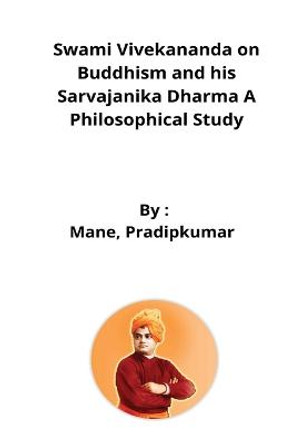Description
Shortlisted for the Cundill History Prize
A field-changing history explains how the subcontinent lost its political identity as the home of all religions and emerged as India, the land of the Hindus.
Did South Asia have a shared regional identity prior to the arrival of Europeans in the late fifteenth century? This is a subject of heated debate in scholarly circles and contemporary political discourse. Manan Ahmed Asif argues that Pakistan, Bangladesh, and the Republic of India share a common political ancestry: they are all part of a region whose people understand themselves as Hindustani. Asif describes the idea of Hindustan, as reflected in the work of native historians from roughly 1000 CE to 1900 CE, and how that idea went missing.
This makes for a radical interpretation of how India came to its contemporary political identity. Asif argues that a European understanding of India as Hindu has replaced an earlier, native understanding of India as Hindustan, a home for all faiths. Turning to the subcontinent's medieval past, Asif uncovers a rich network of historians of Hindustan who imagined, studied, and shaped their kings, cities, and societies. Asif closely examines the most complete idea of Hindustan, elaborated by the early seventeenth century Deccan historian Firishta. His monumental work, Tarikh-i Firishta, became a major source for European philosophers and historians, such as Voltaire, Kant, Hegel, and Gibbon during the eighteenth and nineteenth centuries. Yet Firishta's notions of Hindustan were lost and replaced by a different idea of India that we inhabit today.
The Loss of Hindustan reveals the intellectual pathways that dispensed with multicultural Hindustan and created a religiously partitioned world of today.
About the Author
Manan Ahmed Asif is Associate Professor of History at Columbia University and the author of A Book of Conquest (Harvard).
Reviews
Asif surveys the damage inflicted on the Indian subcontinent by British colonial historiography, with its ideas of immutable religious divisions. Must read!
-- Amitav Ghosh[A] remarkable book...Asif's analysis and conclusions are powerful and poignant. His book also raises certain questions and challenges. Some of these actually are products of the real strength of the book which is his detailed reading and interpretation of Firishta's Tarikh. -- Rudrangshu Mukherjee * The Wire *
Dazzlingly erudite...An intellectual tour de force...Exceptionally stimulating...with its meticulous piecing together of the jigsaw that reveals an entire conceptual universe, complete with its own geography, peoples, history, and archives. -- Vivek Menezes * Mint Lounge *
By examining Firishta's understanding of the history of Hindustan, and how the colonial historians re-ordered his work to fit entirely different narratives, [Asif] argues for a re-examining of our understanding of the pre-colonial past and a need for others in his field to acknowledge the influence of colonial knowledge on the practice of writing history. -- Rohan Venkataramakrishnan * Scroll *
An ambitious endeavor to trace the genealogy of the concept of Hindustan and to embark on this quest with a decolonial framework of the philosophy of history...An indispensable work in the field of global intellectual history. -- Sabeena Shaikh * Arc *
The brilliance of Asif's book rests in the way he makes readers think about the name 'Hindustan' itself and the various connotations it holds...Asif's focus is Indian history but it is, at the same time, a lens to look at questions far bigger. -- Soni Wadhwa * Asian Review of Books *
A tremendous contribution to how we understand an influential premodern Indian historian, Firishta, and the colonial legacy's implications for how we encounter the past...This is not only a book that you must read, but also one that you must chew over and debate. -- Audrey Truschke * Current History *
Through his archaeology of colonialism's discourses on the Indic past, Asif provokes us to contemplate what fundamentally rethinking our periodization and emplotment of Indian history might look like...A compelling contribution. -- Elaine M. Fisher * Journal of the American Academy of Religion *
Remarkable...Asif uncovers how the production of India as a modern nationalist spatial category effaces the Hindustan that appears in Persian and Arabic sources, which in turn were misappropriated to serve European interests and still are largely ignored by Hindu nationalists in the story of Hindustan. -- Patrick J. D'Silva * International Journal of Hindu Studies *
In this remarkable and pathbreaking book, Manan Ahmed Asif peels back layer after layer of the colonial histories of Hindustan. The result is a radical rethink of colonial historiography and a compelling argument for the reassessment of the historical traditions of Hindustan. -- Mahmood Mamdani, author of Neither Settler nor Native
The Loss of Hindustan takes us far beyond critiques of majoritarian nationalisms buttressed by colonial epistemology and reintroduces us to alternative histories of India that once circulated globally. Manan Ahmed Asif has given us nothing short of a master class in the ethics of history writing, illuminating the path to a South Asian future free of intercommunal prejudice and the oppression of minorities. -- Cemil Aydin, author of The Idea of the Muslim World
A sharp, gripping book. Asif eloquently revitalizes Firishta's Hindustan while also uncovering the colonial epistemologies that sought to efface it. The Loss of Hindustan is at once a reflection on a place imagined, remembered, and forgotten and a powerful affirmation of the historian's task in our present world. -- Supriya Gandhi, author of The Emperor Who Never Was
How has the great Indo-Islamic tradition of history-writing been used and misused, bowdlerized or simply effaced, in more recent times? Manan Ahmed Asif delves deep into this question by focusing on the legacy of the important Deccani historian Muhammad Qasim Firishta, a contemporary of Akbar and Jahangir. This is a significant contribution to intellectual history, as well as to the long-term political and cultural history of South Asia. -- Sanjay Subrahmanyam, author of Europe's India
Awards
Short-listed for Cundill Prize in History 2021 (United States).
Book Information
ISBN 9780674987906
Author Manan Ahmed Asif
Format Hardback
Page Count 336
Imprint Harvard University Press
Publisher Harvard University Press




